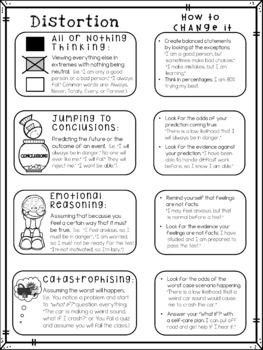Meditation for Stress Reduction and Improved Fitness
Modern life has become increasingly fast-paced and stressful, with individuals constantly juggling work, personal life, and various responsibilities. As a result, stress levels are at an all-time high, leading to detrimental effects on both mental and physical health. To combat this, more and more people are turning to meditation as a means of stress reduction and improved overall fitness. In this article, we will explore the benefits of meditation, its impact on stress reduction, and how it can contribute to improved fitness.
The Benefits of Meditation
Meditation, an ancient practice that originated in Eastern cultures, has gained significant recognition and popularity in recent years due to its numerous benefits. When incorporated into one’s daily routine, meditation can have a profound impact on overall well-being. Some of the key benefits include:
Stress reduction: Meditation has long been hailed as a powerful tool for stress reduction. By engaging in regular meditation practice, individuals can effectively lower their stress levels and experience a greater sense of calm and tranquility in their daily lives.
Improved focus and concentration: Through meditation, individuals can train their minds to stay focused on the present moment, improving their ability to concentrate and be more productive in their day-to-day activities.
Enhanced self-awareness: Meditation provides an opportunity for individuals to connect with their inner selves, gaining a deeper understanding of their thoughts, emotions, and overall state of being. This self-awareness can lead to personal growth and improved decision-making.
Emotional well-being: Regular meditation practice has been shown to reduce symptoms of anxiety and depression, promoting emotional well-being and a greater sense of happiness and contentment.
Improved sleep: Many individuals struggle with insomnia or poor sleep quality, which can further contribute to stress and other health issues. Meditation before bedtime can relax the mind and body, promoting better sleep and restorative rest.
Greater resilience: Meditation cultivates a sense of inner strength and resilience, enabling individuals to better cope with life’s challenges and adversities.
Meditation for Stress Reduction
Stress is a natural part of life, but when it becomes chronic and overwhelming, it can have serious consequences on physical and mental health. This is where meditation proves to be invaluable. By engaging in meditation techniques such as mindfulness or loving-kindness meditation, individuals can effectively manage their stress levels and improve their overall well-being.
Mindfulness meditation, in particular, involves focusing one’s attention on the present moment, observing thoughts and sensations without judgment. This practice helps individuals become more aware of their stress triggers and allows them to respond to stressors in a calm and collected manner. Research has consistently shown that regular mindfulness meditation can reduce stress, anxiety, and even symptoms of depression.
Loving-kindness meditation, on the other hand, involves cultivating feelings of compassion and love towards oneself and others. By sending wishes of well-being and happiness to oneself and others, individuals can counteract negative emotions and foster a more positive and supportive mindset. This can greatly reduce stress and improve overall emotional well-being.
Meditation for Improved Fitness
Meditation is not only beneficial for stress reduction and mental health; it can also contribute to improved physical fitness. Many forms of physical exercise, such as running or weightlifting, place significant strain on the body. Through meditation, individuals can provide their bodies with the rest and recovery they need to optimize their fitness journeys.
When we meditate, we activate the body’s relaxation response, which helps to reduce muscle tension and promote restorative rest. This allows muscles to recover and repair more efficiently, reducing the risk of injury and enhancing overall performance. Moreover, meditation can also improve the mind-body connection, allowing individuals to be more in tune with their bodies during exercise, resulting in better form and technique.
Meditation can also help regulate the body’s stress hormones, such as cortisol, which can have detrimental effects on fitness goals. High levels of cortisol can lead to increased fat storage, muscle loss, and reduced energy levels. By reducing stress through meditation, individuals can keep cortisol levels in check and optimize their fitness endeavors.
Incorporating Meditation into Your Routine
To start reaping the benefits of meditation, it is essential to incorporate it into your daily routine. Here are some tips to help you get started:
Set aside dedicated time: Allocate a specific time each day for your meditation practice. Whether it is in the morning, during lunch breaks, or before bedtime, consistency is key.
Create a peaceful environment: Find a quiet and comfortable space where you can meditate without distractions. Consider dimming the lights, playing soothing music, or using essential oils to further enhance the ambiance.
Start small: If you are new to meditation, begin with just a few minutes of practice each day and gradually increase the duration as you become more comfortable.
Experiment with different techniques: Explore various meditation techniques such as mindfulness, loving-kindness, or guided meditation to find what resonates with you the most.
Be patient and gentle with yourself: Do not expect immediate results or mastery. Meditation is a practice that requires patience and self-compassion. Embrace the journey and allow yourself to grow at your own pace.
Conclusion
Meditation has become an essential tool for individuals seeking to reduce stress and improve their overall fitness levels. Its wide-ranging benefits, from stress reduction to improved focus and physical well-being, make it a worthwhile practice to incorporate into daily life. By setting aside dedicated time, creating a peaceful environment, and starting with small steps, anyone can embark on a transformative journey towards a more balanced and fulfilling life.


